- Home
- Kay Hooper
Wait for Dark Page 3
Wait for Dark Read online
Page 3
“Cops talk,” her partner reminded her. “Maybe he knows what’s special about this unit, or maybe he only knows that we’re called in to help investigate unusual crimes, and that we’re very good at what we do.”
Hollis turned her frowning gaze to their unit chief, who sat with them at the big round table in the Special Crimes Unit’s conference room, a place that was seldom used by any of them for anything except occasional briefings, unless a case was local and they could actually work out of Quantico. “Bishop?”
Special Agent Noah Bishop was another tall, wide-shouldered and athletic man with an almost-too-handsome face that was made very human by a faint, wicked scar twisting down his left cheek. An odd and seemingly inexplicable streak of white hair at his left temple almost glowed surrounded by the raven black, and he possessed a distinct yet somehow unsettling widow’s peak setting off his high forehead. The overall effect was both dangerous and unexpectedly exotic.
He tended to speak quietly and few who knew him could even summon a memory of him losing his temper, but since there were rarely very many secrets or even unknown characteristics in a team of psychics, most of his agents knew only too well that the calm, even reserved outer Bishop was the surface mask over very deep emotions and a great capacity for sheer danger.
An excellent unit chief and gifted profiler even without the psychic edge, he was an unusually loyal friend—and a very bad, completely ruthless, and pitiless enemy.
Bishop seldom gave this sort of direct briefing to his teams, which was clearly setting off alarm bells in Hollis, but all he said in response to her was, “In a small town with less than ten thousand people, four fatalities resulting from seeming accidents in roughly four weeks is . . . an unusual spike, to say the least. Worth investigating.”
“Sure, but by us? Why?” Hollis had never been shy in questioning their unit chief.
One of the two remaining agents at the table, Kirby Bell, said tentatively, “Training assignment? For Cullen and me?” She was younger than the other agents, still in her twenties, and with her short, very red curls and big golden eyes, she could easily have passed for a high school student. In fact, she always got carded at a bar or whenever she ordered alcohol, something she found frustrating and most around her found amusing.
And nobody ever believed she was an FBI agent, no matter how many credentials she could offer as proof.
Cullen Sheridan, the final agent at the table, was nearly as tall as the other two men but less physically imposing, wiry rather than powerful, his regular features usually wearing a friendly expression and his reddish-brown hair seemingly always in need of a trim. He had an unusually deep voice, evident when he said, “It’s not the first case for either one of us. Just the first we’ve both been assigned.” He eyed Bishop from very sharp brown eyes, one brow rising. “Testing out partners?”
“I do that on a continual basis, until it’s obvious a particular partnership gels,” Bishop said. “Sometimes that happens quickly, even almost instantly. Other times not so much.”
“You don’t have to tell me I’m a prickly bastard,” Cullen said, knowing only too well that it was true. Kirby was the fourth partner he’d been paired with in the last eight months.
“A characteristic true of most members of the unit, to one degree or another,” Bishop said. “Male and female alike; our lives are usually difficult and if our abilities weren’t the cause of that, they certainly didn’t—and don’t—help.”
“Ever?” Kirby asked rather forlornly. She was not only the youngest at the table, but also the newest psychic. A car accident two years previous had left her in a coma for a week, after which she had emerged with absolutely no memory of what had happened to her and one more sense than she’d had before. And even though she had found real understanding and total acceptance in the SCU and was happy she was part of the unit, Bishop had had to talk her into joining the FBI.
She was a full agent only because Bishop had over the years earned the authority to recruit people directly into his very specialized unit. Even then, before they could go into the field they were required to complete the basic law enforcement courses and the physical fitness test, or PFT.
Kirby was still astonished she had passed that one.
Hollis said to her, with characteristic bluntness, “At first most abilities can be a pain in the ass, especially if you came to them recently and/or abruptly.” Something she most certainly knew about, since she had developed several of them, each very abruptly, in only the last few years.
“But just at first, right? I mean, it gets better?”
“Some of it does. And some abilities are easier than others to handle. The thing is, most everybody who does get better at it does so in the field, not in the lab. Meditation exercises and biofeedback sessions notwithstanding.”
Kirby said uncertainly, “So it is a training mission?”
Bishop replied, “There really aren’t any SCU training missions per se, not in the field.”
“He doesn’t send us out on those,” Hollis told both of the two newest agents. “Subscribes to the theory that new agents are best broken in by being dropped into the deep end of the pool. Even if there are sharks in the water.” She returned her almost limpid gaze to the unit chief.
Bishop’s very handsome face seldom showed any emotion, but when it did it was the faint scar twisting down his left cheek that was as good as a barometer, becoming more prominent and growing pale when he was in any way disturbed.
The scar remained virtually invisible, his sentry-gray eyes were intent but calm, and a slight smile curved his mouth. “But never unarmed,” he said to Hollis. And then, to Kirby, he said, “Sometimes an investigation that appears simple on the surface turns out to be anything but.”
“Sometimes?” Hollis sighed. “I gather you have reason to believe this is one of those with sharks in the water.” It wasn’t really a question.
Bishop nodded. “I spoke to Sheriff Gordon a couple of hours ago. He confirmed that he’d just received the cell phone records from the fourth and most recent victim, Brady Nash. Before he put it in his reports, he wanted to make sure one very odd similarity between the seeming accidents covered all four. It could well be the signature tying all these supposed accidents together.”
DeMarco frowned slightly. “No cell phones were found at or around the scenes.”
“No. And yet all four victims had cell phones they habitually carried.”
“So what was on the cell records?” Hollis asked.
“The same message was texted to each victim at the exact same time on the afternoon before the night they died. From an unknown number, most certainly a burner. Location still undetermined. And all it said was: Wait for dark.”
Half under her breath, Kirby murmured, “Now that’s creepy.”
Not really scoffing, Hollis said, “Oh, that isn’t even the doorway to creepy. I’m betting we’ll find stuff a lot more worthy of the word.”
Wide-eyed, Kirby said, “Am I supposed to look forward to that?”
“Stop scaring her,” DeMarco said mildly.
“I’m not really scared,” Kirby told him seriously. “Just . . . a little unsettled. Apprehensive, I guess? I’ve been working on my shield and it’s pretty good, usually, but if the whole town is feeling creeped out by what’s happened, I’m bound to pick up on it, and that is not a very comfortable sensation.” She was an eighth-degree empath, which meant she was on the more powerful end of the scale the SCU had developed to measure psychic abilities. And that meant she was likely to feel a great deal of other people’s emotional turmoil, shields or no shields.
She had been known to abruptly burst into tears if enough of the people around her wanted to cry but were holding back.
“Word does tend to get around faster in small towns,” Bishop admitted, “but I gather from the sheriff that while people are talking about the
odd run of accidents, nobody has suggested it’s anything else. So far.”
“So how’s he going to explain us?” Hollis asked. “I’d hazard a guess most people know FBI teams don’t generally investigate accidents unless they involve something like a plane crash.”
With a faint smile, Bishop said, “If anybody asks, Gordon plans to explain that the FBI does sometimes assist in investigating an unusual number of accidents in a small, fairly remote area. To expose our agents to . . . every type of incident.”
“And he thinks that’s gonna fly?”
DeMarco closed one of the files in front of him and said, “Well, he’s called in an ME from the state network, so I’m betting people are already getting curious, if not uneasy.”
“Great,” Kirby murmured.
“This could all stop at the four victims we have now,” Bishop pointed out. “Even if they aren’t accidents, if someone is behind them, he or she might not continue.”
“Because one of the four victims might have been the only real target,” Hollis said slowly.
“The idea has been used in enough mystery novels and TV shows over the years, and in reality. More than one serial or mass murderer has tried to hide a single murder by killing a group of unrelated or seemingly random people. That could be the case here. It’s certainly a possibility that has to be investigated.”
DeMarco said, “One the sheriff would have trouble exploring fully after he’s classed all the deaths as accidental.”
Bishop nodded. “Exactly. We can ask questions he can’t about accidents, especially using the excuse he’s giving us. And if this isn’t finished yet, if there’s another odd accident, I doubt it’ll go unnoticed in Clarity with or without our presence. People will begin connecting the dots, that’s inevitable. Still, the text messages haven’t become the subject of gossip or speculation publicly. At least at this point, Sheriff Gordon doesn’t plan to share any of that information with anyone except his lead deputy and us.”
“Which is great,” Cullen said. “Unless, of course, the victims shared those with someone else before they were killed, and it just hasn’t gone public. Yet. If I got a weird text message like that, it’s something I might do.”
“As far as the sheriff can determine, they didn’t, but it’s not a question he can ask outright. Not a question we can either, as long as that text remains the only commonality to link these . . . accidents. Especially if they don’t stop at four.”
DeMarco said, “You have reason to believe this is going to continue? Weird accidents that are anything but?” It was just barely a question.
“If, as the texts suggest, there’s a killer making his crimes look like peculiar accidents, and toying with his victims to the extent of warning them something’s about to happen, I doubt he’ll stop until he achieves his goals. Whatever those might be.” Briskly, he added, “Hollis, you have the most experience as a profiler, so you’re lead. If there is someone behind this, Gordon doesn’t believe it’s a stranger; he believes a local is most likely responsible, and I agree. Demographics for Clarity are fairly uniform, however.”
“So nobody sticks out,” Hollis said. “Small towns really do suck when it comes to victimology. Too damned many overlaps. Churches, doctors, places to shop, schools, even jobs. Really hard to find something specific all the victims have in common when they have most things in common.”
Bishop nodded. “And worse when the victims are composed of both genders and a wide age range. An accurate profile of this unsub may be the only way to find him and stop him, and building that profile is going to take more than standard victimology, more than standard police work.”
Hollis duly noted that he had abandoned even the pretense of believing they were going to investigate accidents. “Which means our psychic tools are likely to play a major role in finding this unsub,” she said.
“I believe so.”
Kirby murmured, “But no pressure.”
“You’re part of a team; we share the pressure.” Hollis sent the younger agent a quick, slightly rueful smile, then said to Bishop, “Do we confide in the good sheriff?”
“Play it by ear. I couldn’t really get a sense of whether he knows about our abilities or simply assumes we’re a specialized unit called in on crimes that don’t fit the usual patterns.”
“So,” Cullen said, “we keep the psychic stuff low-key.”
“At least until you get the lay of the land,” Bishop agreed. “Quite often, these small mountain towns lean more heavily toward superstition than science, and rumors, once started, tend to run that way. Things can get ugly in a hurry. So even if the sheriff is told, he may want to keep the info to himself.”
“That happens more often than not no matter how the townsfolk feel about it,” Hollis said dryly. “Very few cops want to admit they turned to psychics for help.”
“It does vary, though, so take your lead from him. And even after that choice is made, it goes without saying, if and when the media becomes interested in the story, they’ll know only that you’re FBI agents, called in to assist local law enforcement, and you stay in the background as much as possible, away from the cameras. If cornered by media, you have no comment.”
“Copy that,” Cullen said.
“Sheriff Gordon is expecting you. The jet will be ready to go in half an hour. The usual SUV, stocked with supplies, will be waiting for you at the airstrip near Clarity, the nav system already programmed to get you to town.”
“Is it that far off the beaten path?” Kirby wondered, clearly still uneasy.
“It’s that far off a major highway, and mountain roads can be tricky, especially at night. It’ll be dark by the time you reach town since night comes early in mountain valleys, but not too late, so you can meet Sheriff Gordon, get settled in, and start fresh in the morning.”
Hollis nodded and got to her feet. “You’re the boss. Come on, guys, let’s go cancel whatever plans we may have made for the weekend and get our go bags ready.”
She didn’t appear to notice that her partner did not rise with the two newer agents but stayed in his seat, and if either of them thought it odd, they didn’t show it.
When they were alone, Reese DeMarco, still gazing at the folders on the table before him, said quietly, “She isn’t ready.”
Clarity
Sheriff Mal Gordon frowned at the man who couldn’t sit still in his visitor’s chair. “You want to run that by me again, Joe?” he requested politely.
Joseph Cross tried and failed to not look as desperate as he felt, but he felt things strongly and this was no exception. Given that he generally wore a hunted, even paranoid expression common to men who dealt in bootleg whiskey and was known to have a still of his own hidden away somewhere, it was generally next to impossible for him to hide any emotions at all. “I just know something’s happened to Perla. I know it, Mal.”
Perla Ferguson Cross held the dubious honor of being married to Joe Cross, and had let it be known that if a white knight would only swoop down and rescue her or, failing that, she could get her hands on enough money to haul her own ass out of Clarity, she’d lose no time in doing so.
They had been married slightly less than a year.
The betting pool on when Perla would leave Joe had been going on at the sheriff’s department for on to nine months now.
Mal wondered fleetingly who had won the considerable pot but tried to keep his mind on business.
“Joe, I know you don’t want to hear it, but Perla’s had one foot out the door since your honeymoon, and everybody in town knows it because she talks to people. A lot. She’s left you more than once, and only returned because she barely had enough money to get to the Holiday Inn out on the highway and spend a night or two.”
Even though she had a well-paying job, Perla loved to shop, especially for shoes, and had an impressive collection of heels that looked good on
her but were decidedly out of place in Clarity.
Joe flushed, but then the hectic color faded and he just looked anxious. “I know that, Mal, but this time it’s different. Really different.”
“How?”
“She didn’t take anything. No bags, none of her perfumes or makeup, not the grocery money. All her clothes and shoes are still where they ought to be, even that stupid little dog of hers is in the house yapping its head off. I wanted to strangle the damned thing.” At a look from the sheriff, he added hastily, “I didn’t touch him, I swear. Left him in the house still yapping his head off.”
Mal had to admit, if only silently, that Perla was unlikely to have run away without taking any of her things, most especially the little Yorkie, whose name was Felix and who went everywhere with Perla, his head sticking up from the overlarge designer purse she carried mostly to accommodate her companion. Whether or not the pooch in the bag had begun as another fashion statement very much out of step with Clarity, it had quickly become clear that Perla loved that little dog. He frowned. “Her purse?”
“Right where she always leaves it, on her dressing table,” Joe said miserably.
“How long since you’ve seen her?”
“This morning, before I left for work. She had the day off and said she was going to start cleaning out the attic. The attic door was closed when I got home, but I went up the steps far enough to call out to her, even though I doubt she would have been up there all day. Nothing, not a sound. And the lights weren’t on. There’s no way she’d be sitting up there in the dark. Too creepy.”
Perla and Joe lived on the outskirts of town in his family home, which sprawled with the odd architecture of an original cottage added to as necessary to house a once-growing family of varying tastes and which could boast generations of unwanted or damaged possessions in the basement and attic.
“Nobody at the bank has heard from her?” She worked there as a teller.

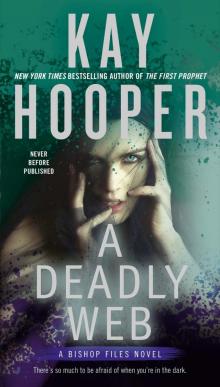 A Deadly Web
A Deadly Web Raven on the Wing
Raven on the Wing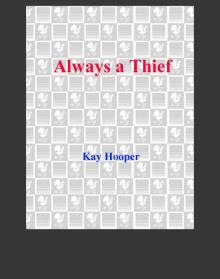 Always a Thief
Always a Thief Star-Crossed Lovers
Star-Crossed Lovers Blood Dreams
Blood Dreams Shades of Gray
Shades of Gray Rebel Waltz
Rebel Waltz Chill of Fear
Chill of Fear Sleeping With Fear
Sleeping With Fear After Caroline
After Caroline Time After Time
Time After Time Haunting Rachel
Haunting Rachel Hunting Fear
Hunting Fear Out of the Shadows
Out of the Shadows Whisper of Evil
Whisper of Evil Blood Sins
Blood Sins Hiding in the Shadows
Hiding in the Shadows C.J.'s Fate C.J.'s Fate C.J.'s Fate
C.J.'s Fate C.J.'s Fate C.J.'s Fate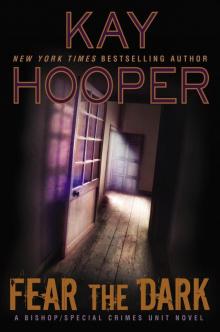 Fear the Dark
Fear the Dark Illegal Possession
Illegal Possession Stealing Shadows
Stealing Shadows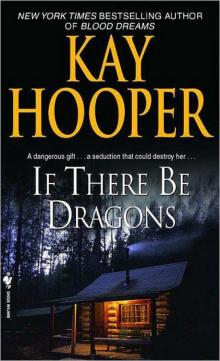 If There Be Dragons
If There Be Dragons Once a Thief
Once a Thief In Serena's Web
In Serena's Web On Wings of Magic on Wings of Magic
On Wings of Magic on Wings of Magic Hostage
Hostage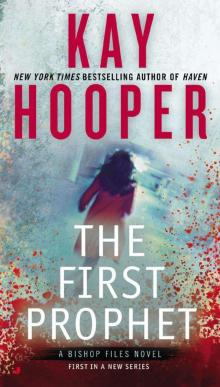 The First Prophet
The First Prophet Through the Looking Glass
Through the Looking Glass Golden Flames
Golden Flames Finding Laura
Finding Laura Haven
Haven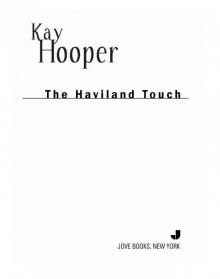 The Haviland Touch
The Haviland Touch The Lady and the Lion
The Lady and the Lion Haunted
Haunted Velvet Ligntning
Velvet Ligntning Blood Ties
Blood Ties Adelaide, the Enchantress
Adelaide, the Enchantress The Matchmaker
The Matchmaker Golden Threads
Golden Threads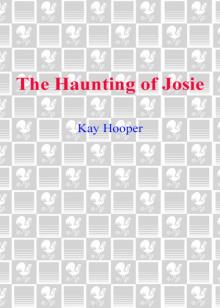 The Haunting of Josie
The Haunting of Josie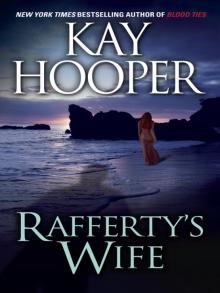 Rafferty's Wife
Rafferty's Wife Amanda
Amanda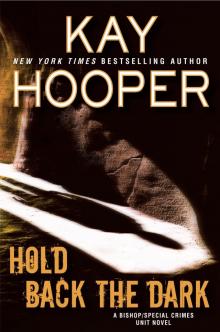 Hold Back the Dark
Hold Back the Dark Sense of Evil
Sense of Evil What Dreams May Come
What Dreams May Come Larger Than Life
Larger Than Life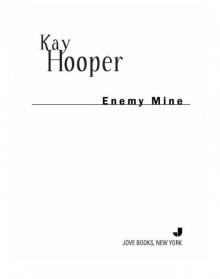 Enemy Mine
Enemy Mine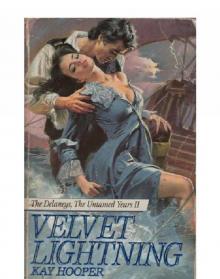 Velvet Lightning
Velvet Lightning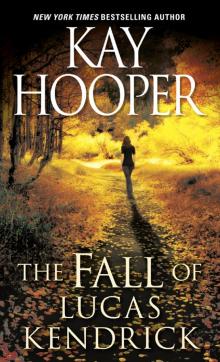 The Fall of Lucas Kendrick
The Fall of Lucas Kendrick Aces High
Aces High Captain's Paradise: A Novel
Captain's Paradise: A Novel The Wizard of Seattle
The Wizard of Seattle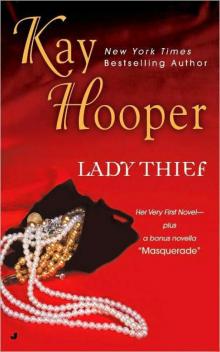 Lady Thief
Lady Thief Summer of the Unicorn
Summer of the Unicorn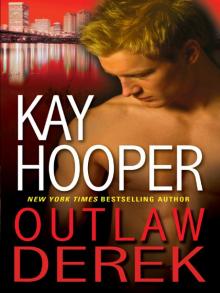 Outlaw Derek
Outlaw Derek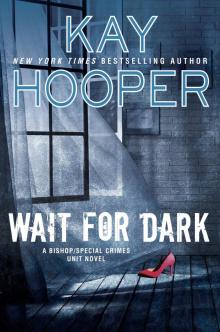 Wait for Dark
Wait for Dark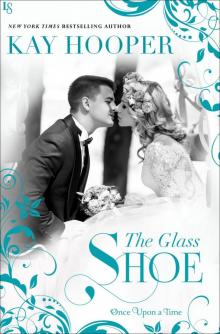 The Glass Shoe
The Glass Shoe It Takes a Thief
It Takes a Thief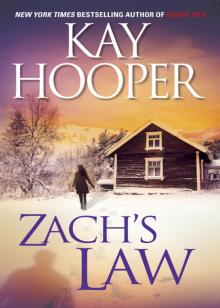 Zach's Law
Zach's Law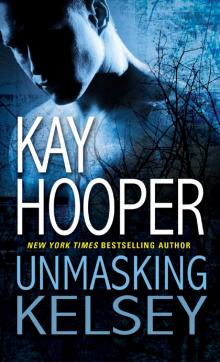 Unmasking Kelsey
Unmasking Kelsey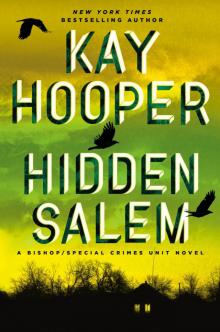 Hidden Salem
Hidden Salem